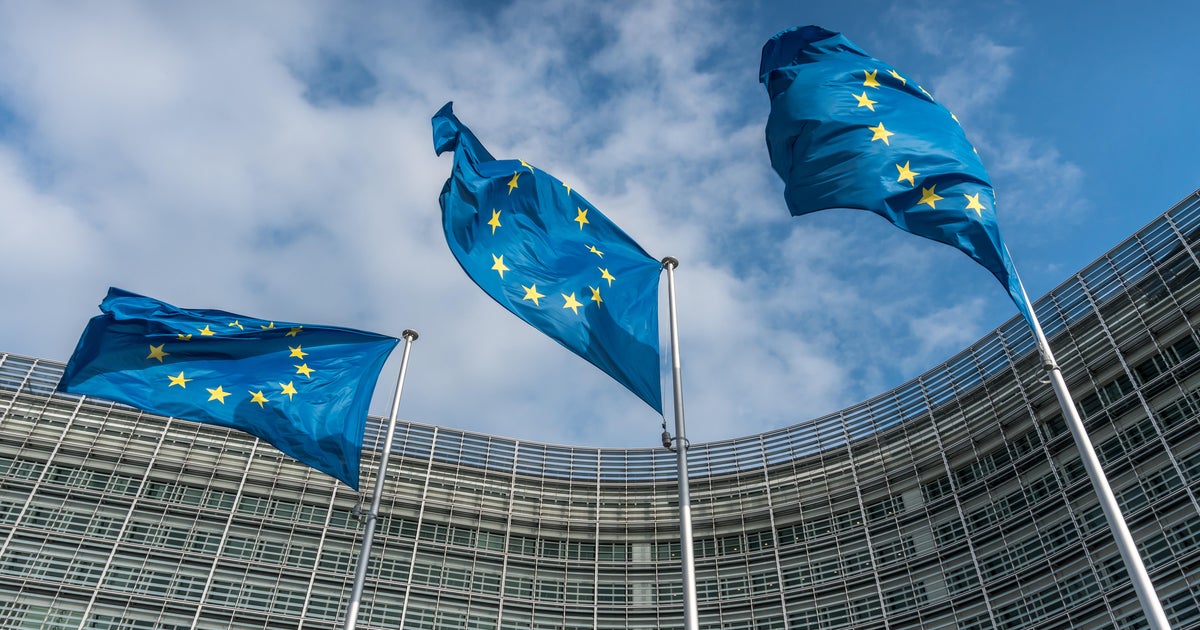Can the EU Accelerate Its Phase-Out of Russian Gas Post-Trump?

Published: 2025-09-19 14:12:15 | Category: politics diplomacy GNEWS Search
The European Union has proposed an accelerated ban on Russian gas imports, aiming to phase out liquefied natural gas (LNG) purchases by January 2027. This decision is part of a broader sanctions package intended to diminish Russia's revenue from fossil fuels, which has been crucial to funding its military actions. The EU's move aligns with pressure from the United States to halt fossil fuel imports from Russia amid ongoing geopolitical tensions.
Last updated: 29 October 2023 (BST)
Key Takeaways
- The EU plans to ban Russian LNG imports by January 2027, a year earlier than previously anticipated.
- This decision is part of a wider sanctions package aimed at weakening Russia's economy.
- Ursula von der Leyen, the EU Commission chief, emphasised the need to cut revenue from fossil fuel exports.
- The EU has already significantly reduced its dependency on Russian oil, dropping from 29% to 2% since early 2021.
- Despite sanctions, Russia still accounts for 19% of the EU's gas supply in 2024.
The Context of the Proposed Ban
The proposed ban on Russian gas imports comes in response to ongoing pressures stemming from Moscow's invasion of Ukraine, which began in February 2022. As the conflict continues, the EU is under mounting pressure, especially from the United States, to cut ties with Russian fossil fuels. The rationale is straightforward: severing economic ties could disrupt Russia's capacity to finance its military operations.
Ursula von der Leyen's statement, “It is time to turn off the tap,” encapsulates the EU's resolve to reduce its dependency on Russian energy. The proposed ban on LNG imports marks a significant step in the EU's strategy to curtail financial inflows that sustain Russia's war economy.
Previous Sanctions and Their Impact
The EU has already implemented multiple rounds of sanctions against Russia since the invasion. These measures have included:
- Asset freezes targeting individuals and entities associated with the Russian government.
- A near-complete ban on importing Russian oil, reducing its share of EU oil imports from 29% in early 2021 to an expected 2% by mid-2025.
- Restrictions on various sectors of the Russian economy, including finance and trade.
Despite these efforts, Russia still supplied 19% of the EU's gas in 2024, down from 45% before the war. This reliance highlights the challenges the EU faces in fully severing ties with Russian energy sources. While LNG imports have increased as a substitute, they have not yet fully compensated for the decline in pipeline gas imports from Russia.
Details of the New Sanctions Package
The specifics of the new sanctions package remain somewhat vague, as von der Leyen did not disclose all the measures being considered. However, it is believed that the package will also target:
- Chinese refineries and special economic zones involved in trade with Russia.
- Financial institutions in Russia and Central Asia that facilitate oil purchases.
- Oil traders and petrochemical companies operating in third countries, including China.
This comprehensive approach signals the EU's intent to not only address its own energy security but also to curtail the broader networks that support Russia's war efforts.
Challenges Ahead
While the EU's plans to phase out Russian LNG imports are ambitious, several challenges lie ahead:
- Supply Alternatives: Securing alternative sources of natural gas is crucial. The EU is actively seeking to increase imports from other countries, including the United States, Qatar, and Norway.
- Infrastructure Needs: The transition to alternative energy sources requires significant investment in infrastructure, including LNG terminals and pipelines capable of handling new sources of supply.
- Political Consensus: Achieving unanimous agreement among the 27 EU member states can be contentious, particularly with nations like Hungary and Slovakia that have maintained closer ties to Russia.
The Role of the United States
The United States has played a pivotal role in encouraging the EU to adopt tougher sanctions against Russia. Recently, President Trump has indicated a willingness to support measures that would further isolate Moscow, provided that allied nations cease purchasing Russian oil and consider imposing tariffs on China for its involvement in the trade.
This transatlantic dialogue underscores the interconnectedness of global energy markets and the geopolitical implications of energy dependence. The US has increased its LNG exports to the EU as part of efforts to fill the gap left by Russian gas, but market dynamics continue to evolve.
What Happens Next?
The proposed ban on Russian LNG imports is set to be discussed by EU member states for approval. Should the measures pass, the EU will need to implement them swiftly to minimise any potential disruptions in energy supply. The next steps may include:
- Formal approval of the sanctions package by member states.
- Implementation of measures to secure alternative energy sources.
- Monitoring and enforcement of sanctions against those who breach them, including entities in third countries.
Conclusion
The EU's proposal to bring forward a ban on Russian gas imports is a significant move in the ongoing efforts to diminish Russia's capacity to fund its military operations. As the bloc navigates through these sanctions, it must also address the challenges of energy supply security and political consensus among its member states. The outcome of these discussions will not only impact Europe but could also reshape global energy markets.
As the geopolitical landscape continues to shift, how will the EU balance its energy needs with the pressing demand for a united front against aggression? The answers to these questions will be pivotal in the months to come.
#EUSanctions #RussianGas #EnergySecurity
FAQs
What is the timeline for the EU's ban on Russian LNG imports?
The EU plans to phase out liquefied natural gas (LNG) imports from Russia by January 2027, which is a year earlier than initially planned.
How much of the EU's gas supply comes from Russia currently?
As of 2024, Russia accounts for approximately 19% of the EU's gas supply, down from 45% before the war in Ukraine began in February 2022.
What are the key components of the new sanctions package?
The new sanctions package targets Russian LNG imports, Chinese refineries, and financial institutions in Russia and Central Asia involved in oil purchases, among other measures.
How has the EU's dependency on Russian oil changed?
The EU has significantly reduced its dependency on Russian oil, decreasing its share of imports from 29% in early 2021 to an expected 2% by mid-2025.
What challenges does the EU face in implementing these sanctions?
The EU faces challenges in securing alternative energy sources, investing in necessary infrastructure, and achieving political consensus among member states regarding the sanctions.



